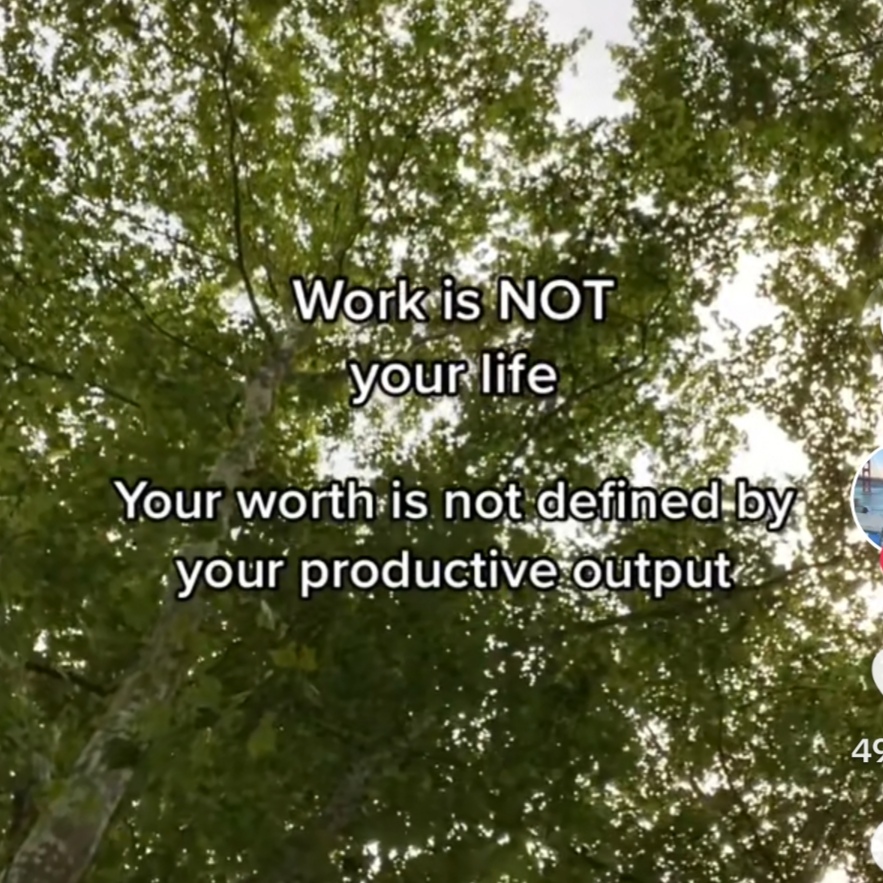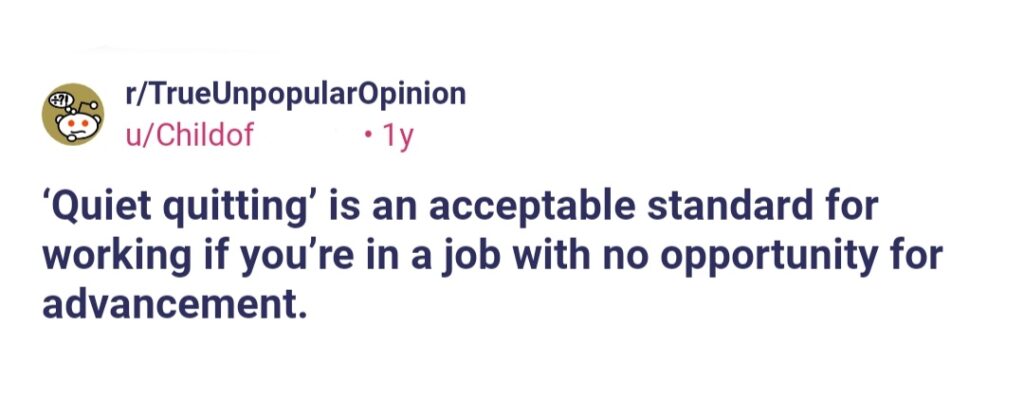Clocking In, Tuning Out: The Unspoken Response to Hustle Culture
Written by: Chris Joy Campa-an
Have you ever worked really hard, given all your efforts, and dedicated all your time to something, but in the end, none was acknowledged? Have you lost will and energy and continued to just do the bare minimum?

This seems to be the current trend among young employees in the workplace. Lack of enthusiasm, emotional detachment, decline in productivity, and lack of initiative are some signs they show. Who are they, exactly? The workers who choose to silently quit.
What is silent or quiet quitting? It is when employees do the bare minimum required at work without going above and beyond. They fulfill their job responsibilities but avoid tasks that aren’t explicitly part of their role. Unlike actually handing out a resignation letter, silent quitting is different in the way that they stay, but they are disengaged – withdrawn.

Courtesy: FilWeb Asia
They may arrive and leave on time without working extra hours, they may lose interest in tasks they once found engaging and avoid volunteering for new projects, they may contribute less in meetings, avoid conversations about long-term goals, and limit interactions with colleagues, and they may seem indifferent to feedback, company goals, or changes in the organization. But they will stay.
For one to silently quit means one was once loud in their hard work and efforts inside the workplace, so what forces them to disconnect?
According to Dilekçi, Kaya, et. al (2025), occupational stress and burnout lead to emotional exhaustion, decreased job satisfaction, and a loss of motivation among employees. When employees constantly work long hours without proper breaks, are given unrealistic workloads or constant pressure, and do not receive enough support from management, their performance is negatively impacted.
In a report by Remote (2024) on the Global Life-Work Balance Index, the Philippines ranked 59th out of 60 countries with only a 27.46 index score out of 100. Filipino workers have an average of 40.63 hours per week with an hourly wage of $1.45 or Php 83.21. This non-existent work-life balance compels workers to seek, and therefore set firmer boundaries in terms of working hours.
“Toxic work environments filled with micromanagement, lack of recognition, unfair treatment, or poor communication breed negativity and dissatisfaction, ” Richest PH (2025) stated. Filipino workers suffer from feelings of lack of appreciation, and an unhappy worker is “less likely to put in their best effort”.


Courtesy: TikTok
Not only this, but feeling under-compensated compared to the market rate, as well as the lack of essential benefits like healthcare, paid leaves, or mental health support can also contribute to the workers feeling the need to silently quit as this creates significant stress and impacts morale.

Courtesy: TikTok
It is also important to note that Filipinos are non-confrontational. We strive to maintain harmony, especially with our employers. With our culture putting a strong emphasis on pakikisama, instead of resigning or voicing out dissatisfaction, employees choose to quit passively.
Why is silent quitting especially prevalent among youth?
The priorities of the new generation have shifted – from job stability and loyalty, younger Filipinos now tend to value work-life balance more, as well as mental health and personal fulfillment. Desiderio (2023), by a report from Philstar, found that Filipino employees see benefits in silent quitting, such as reduced stress (67%), improved mental health (54%), and better work-life balance (48%).


In addition, social media and global narratives influence the mindset of Gen Z and Millenials in our everyday lives, especially in professional settings. “Bare Minimum Mondays”, “Micro-Retirements”, and “Act Your Wage” – these are some of the discussions and trends that are all over the internet redefining employee-work relationships. Youth are more likely to disengage when they feel undervalued or overworked.
Young professionals also seek flexibility and autonomy at work more than other generations do. According to PwC’s Global Workforce Hopes and Fears Survey (2022), 51% of Gen Z workers prioritize having a choice in their working hours or days, compared to 41% of Baby Boomers, which means there is a 10% higher preference among Gen Z. They value their ability to choose working hours and location because they put importance to work-life balance. Flexibility in workplaces also gives them a sense of autonomy and trust, which contributes to a more positive work environment.
Silent quitting impacts employers in ways like a drop in productivity, feeling the need to overcompensate, a negative work environment, as well as a decline in innovation and growth inside the company. Although companies have and are continuously trying to combat silent quitting among employees, there is no guarantee of success due to the different needs and hopes of workers.
Is silent quitting bad? Granted, it can have negative effects on the organization and even the industry. The lack of growth and innovation can affect a company’s profitability and competitiveness. However, is that really the most crucial concern here? Rather than viewing it as inherently negative, shouldn’t we view this as a symptom of a much larger workplace issue? For all we know, silent quitting might be a silent cry for a healthier, more sustainable work environment.
Is silent quitting just a workplace trend? Or is it a behavioral response?
For you, is silent quitting valid? Do you see yourself silently quitting over something too? Or have you already done it before? How do you think we can fight it?
What do YOUTH think? What do YOU think?
References:
Dilekçi, Ü., Kaya, A., & Çiçek, İ. (2025). Occupational stress, burnout, and change fatigue as predictors of quiet quitting among teachers. Acta Psychologica, 254, 104812. https://doi.org/10.1016/j.actpsy.2025.104812
Remote. (2025, January 16). Global Life-Work Balance Index 2024 | Best Countries for Work-Life Balance. Remote. https://remote.com/resources/research/global-life-work-balance-index
Desiderio, L. (2023, January 5). 60% of workers quietly quitting, study reveals. Philstar.com. https://qa.philstar.com/business/2023/01/06/2235578/60-workers-quietly-quitting-study-reveals
PricewaterhouseCoopers. (n.d.). PWC’s Global Workforce Hopes and Fears Survey 2022| PWC. PwC. https://www.pwc.com/gx/en/issues/workforce/hopes-and-fears-2022.html